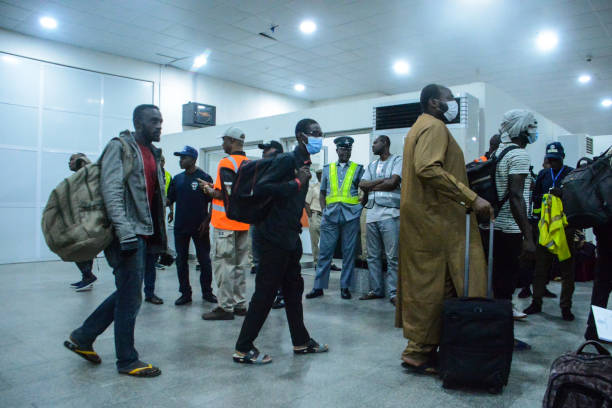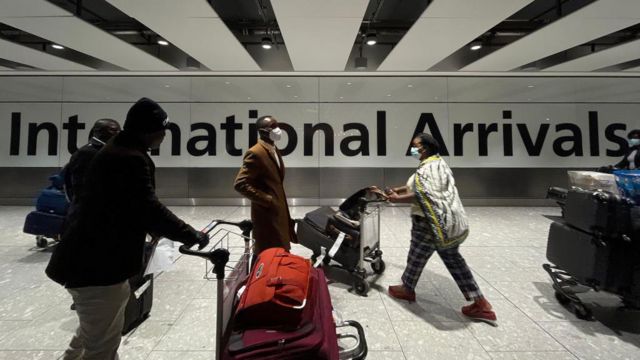“I love Nigeria, but Nigeria no love me back.”
That’s the familiar joke flying around on social media these days. It sounds funny—until you realise it’s coming from doctors, engineers, lecturers, and tech whizzes booking one-way flights out of the country. Welcome to the Japa era, Nigeria’s brain drain crisis in full swing.
From Lagos to London, Abuja to Alberta, and Enugu to Edinburgh, a quiet but steady stream of Nigeria’s brightest minds are packing their bags, hugging teary mothers at the airport, and chasing better lives abroad. This isn’t just a few people looking for greener pastures. This is a mass migration—fueled by frustration, fear, and fading hope.
Japa: A New Name for an Old Story
“Japa” comes from Yoruba, meaning “to run away.” But these days, it’s more than just a word. It’s a movement. A mindset. For many, it’s a lifeline.
“I never wanted to leave,” said Dr. Ada, a 35-year-old medical doctor who now lives in the UK. “But after working 10 years in Nigeria with unpaid salaries, no equipment, and rising insecurity, I had to choose between survival and patriotism.”
She’s not alone. Over 17,000 Nigerian-trained doctors are now practising abroad, according to the Nigerian Medical Association. Nurses, software developers, university lecturers, accountants—you name it—are leaving in droves.
Why Are They Leaving?
1. Economic Realities
Let’s be honest: the naira is behaving like it’s on a slippery slope. Inflation keeps rising while salaries stay flat. A tech developer in Lagos might earn ₦300,000 a month—barely enough for rent, food, and “NEPA bill”—while their peers abroad earn ten times that, working fewer hours with better tools.
“It’s not greed. It’s survival,” said Tunde, a software engineer who just relocated to Canada. “My landlord increased rent. Fuel prices doubled. Internet is slow. How do you build a tech future in darkness?”
2. Insecurity and Fear
Beyond the economy, there’s fear. Bandits, kidnappers, and police harassment are part of daily conversations.
“You step out and your family starts praying,” said Aisha, a university lecturer who moved to Germany last year. “I didn’t want to live in fear. I wanted my kids to play outside without hearing gunshots.”
3. Lack of Value
Let’s face it—Nigeria doesn’t always treat her professionals with respect. Striking doctors. Unpaid teachers. Ignored scientists. It’s no wonder people feel unappreciated.
“When I got to the UK and they introduced me as ‘Dr. Okoro,’ and people clapped, I cried,” said Dr. Okoro, who now works in Birmingham. “In Nigeria, I was treated like a nuisance.”
What Are We Losing?
We’re not just losing people—we’re losing knowledge, creativity, and potential. Imagine the number of hospitals without doctors. Universities without senior lecturers. Startups without talent.
This japa wave is creating a vacuum, especially in vital sectors. The Nigerian health system, for instance, is groaning under the weight of too few hands. In 2023 alone, over 3,000 nurses left the country.
And Yet… Hope Still Lives Here
Funny enough, many of those who japa still speak fondly of Nigeria. They send money home, build houses, invest in startups, and even plan to return—someday.
“Nigeria is still my home,” said Kemi, a data analyst in Dublin. “But I’ll only come back when Nigeria is safe, sane, and stable. Right now, na condition make crayfish bend.”
Can Nigeria Fix This?
It won’t be easy. But it’s possible. Experts say the government must invest in health, education, infrastructure, and security. More importantly, we must create a society where merit is rewarded, and people don’t have to beg to be paid their salaries.
The youths aren’t lazy. They’re just tired. And until we make Nigeria work for Nigerians, the best of us will keep flying away, boarding Emirates and British Airways with tears in their eyes and dreams in their pockets.
As one viral tweet said:
“Make Nigeria sweet, so we no go dey run like who thief meat from pot.”
Editor’s Note:
If you’re reading this in Canada or the UK with a bowl of hot amala in your lap—greetings. We miss you. But we understand.





